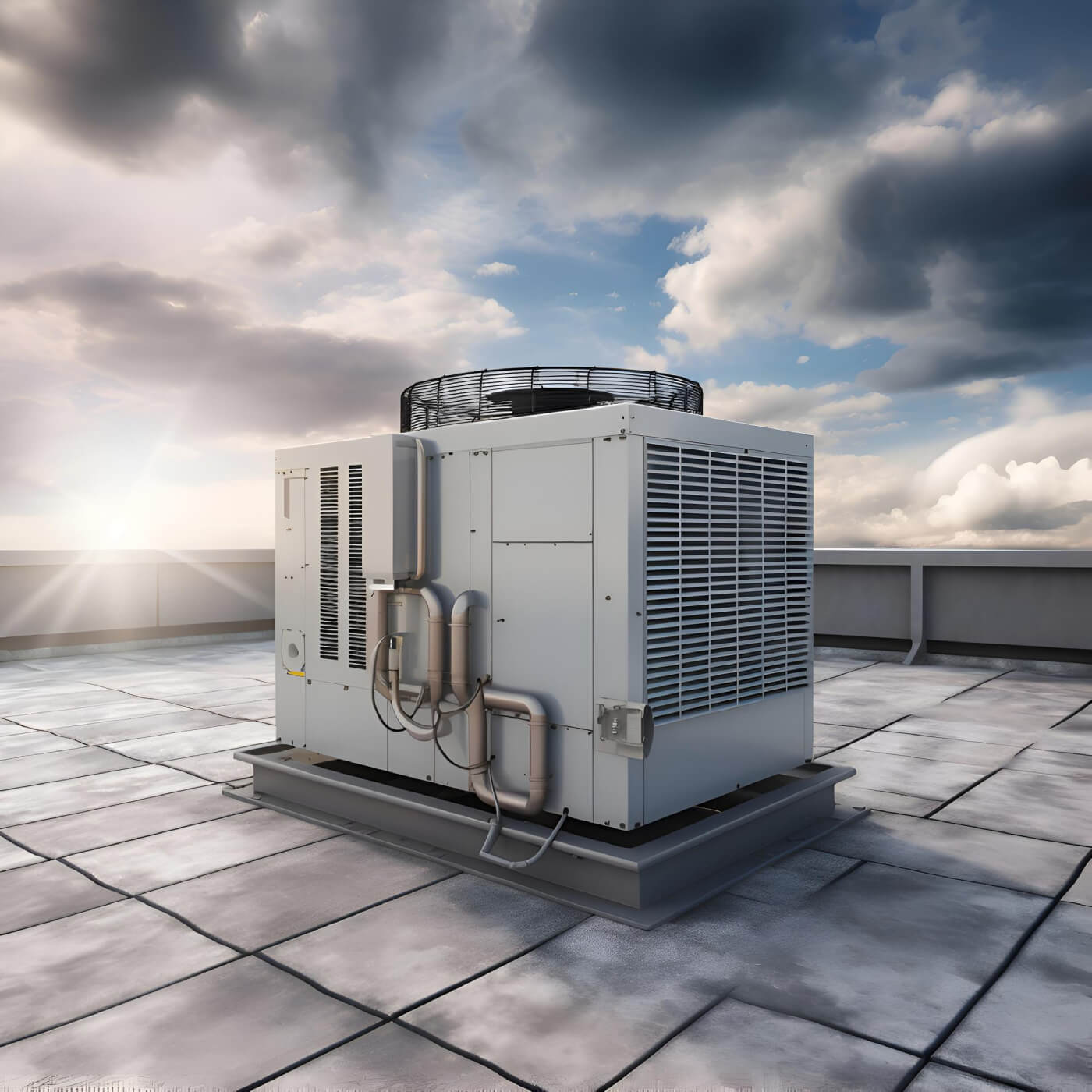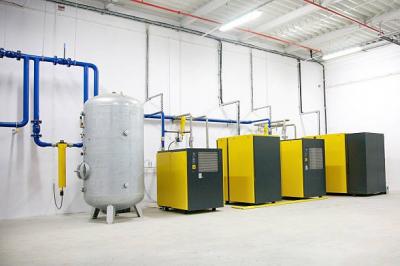Energy Savings:
During compressor operation, significant heat is generated. This waste heat can serve as a significant energy source worth utilizing efficiently.
Recovering waste heat can help reduce external energy demand by utilizing existing heat in processes.
Process Efficiency:
Utilizing compressor waste heat can increase process efficiency by improving system performance through heat recovery.
The recycled heat can be used for heating, hot water production, or assisting in other industrial processes such as preheating water systems with steam.
Depending on the compressor and its utilization, waste heat utilization can generate hot water at 60°C.

The picture is for illustration only

The picture is for illustration only
Greenhouse Gas Emissions Reduction:
Utilizing compressor waste heat can help reduce greenhouse gas emissions by improving energy efficiency, thus reducing the need for external energy sources.
Cost Reduction:
Utilizing compressor waste heat can contribute to cost reduction for businesses through energy savings.
Lower energy consumption and improved energy efficiency can result in a profitable long-term investment.
Sustainability:
Utilizing waste heat is a step towards sustainability as it helps reduce energy demand and minimize environmental impact.
Companies and industries that harness compressor waste heat can achieve not only environmentally friendly solutions but also long-term cost savings while enhancing process efficiency and sustainability.
Energy Efficiency Obligation System (EEOS):

The picture is for illustration only
The EEOS's domestic introduction aims to:
- Support energy efficiency investments that reduce our country's carbon dioxide emissions. Energy savings achieved by consumers are verified and certified by auditors, and these so-called white certificates become tradable assets for obligated energy traders, providing a source of funding for investments, improving their return on investment to a level acceptable to corporate executives.
- It helps fulfill domestic energy efficiency commitments by demonstrating and administering energy savings resulting from energy-related but not primarily energy-related investments (e.g., equipment replacement).
Investments initiated only after January 16, 2020, are eligible in the EEOS!
Investments that contribute to more efficient operation and show a reduction in previous energy consumption following the investment are eligible for support based on the saved energy.
Investments related to the utilization of compressor waste heat can be accounted for in the EEOS.
How can MONOJET Ltd assist you?
- We undertake implementations related to the utilization of compressor waste heat.
- Our company has an Auditor partner who can assist you in calculating and auditing energy efficiency within the EEOS system. Our Auditor partner holds payer rights within the EEOS.
- If you are considering energy efficiency improvements for your compressor, we can assist in the following ways:
Assessment of compressor operation efficiency,
Establishment of waste heat utilization systems (heating, hot water supply in social premises, technological use).
Case Study
In our latest waste heat utilization implementation, our partner wanted to utilize the hot water produced by the compressor for heating in the factory's social premises and in the hot water supply system.
Their compressor is an inverter-equipped unit with an integrated heat exchanger. The waste heat produced is stored in a 1000-liter enameled hot water storage tank capable of being equipped with a two-pipe electric heater (not equipped with a heater).
Following the investment, they were able to completely replace the system previously used for heating and hot water supply in social premises with waste heat utilization.

The picture is for illustration only
At our partner's facility, the following EEOS settlement becomes feasible after the investment:










